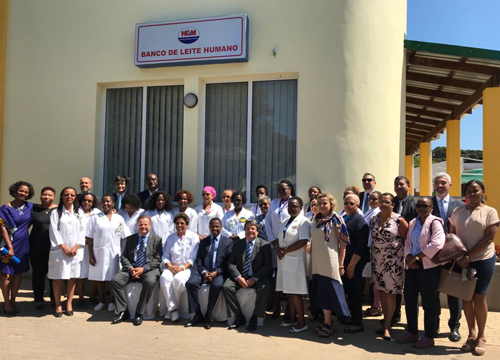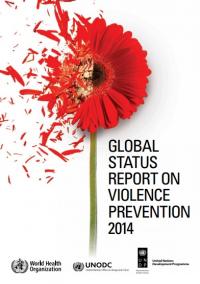First breast milk bank opens in Mozambique

With almost 20 thousand premature births per year and an estimated neonatal mortality rate of 28 deaths per thousand births, Mozambique has taken an important step towards neonatal health. Last Friday (10/26), the first Breast Milk Bank (BMB) opened with a great party in the country, at Central Hospital Maputo. This is the second facility in Africa following the Brazilian model: Cape Verde has one BMB operating since 2011, and the second facility is under implementation process. Angola will be the next country to have a BMB in Luanda.Coordinated by the Brazilian Cooperation Agency (ABC) and Fiocruz, through the Global Network of Human Milk Banks (rBLH), the initiative is an important milestone to reduce infant morbidity and mortality, especially with regard to newborns food and nutritional security in the African country. “Today, we start a new chapter in the history of quality care service for pediatric patient, especially neonatal care. The BMB we are inaugurating today is an important ally of our government's policies,” Mozambican Health
Photo: Brazilian Cooperation Agency
Transfer of principles
Hospital Maputo BMB facility symbolizes the coronation of the bilateral cooperation project initiated in 2009 with the first visit of members of the National Institute of Women, Children and Adolescents Health Fernandes Figueira (IFF/Fiocruz), headquarters of the Reference Center for rBLH to Mozambique. Since then, several missions were conducted to qualify the team from the perspective of the Brazilian model. “The cooperation is not only based in the transfer of low-cost and moderate technology developed at Fiocruz, but on principles. Mozambique had many specificities, which were worked on over the last years. We are very proud to see this facility fully operating,” celebrated the rBLH coordinator, João Aprigio Guerra de Almeida.
According to the Brazilian ambassador to Mozambique, Rodrigo Baena, the country is currently the largest Brazilian cooperation partner in the world. With the BMB project we have over 40 ongoing actions in the agriculture, education and health fields. “We seek to develop cooperation projects from successful experiences in Brazil, and focused on human resources training. The BMB action is one the best cooperation examples. From a low cost technology, we have taken a decisive step in the fight against malnutrition and neonatal mortality. I am sure that the mothers and the babies of Maputo will immediately feel the benefits brought by the BMB,” said the ambassador.
Breastfeeding support houses
Isabele João has two children and already celebrates the arrival of the BMB. She was not able to breastfeed her firstborn, but now she became a breast milk donor. In addition to increasing the donation stock, Isabele is able to maintain the good health of her second child. “This experience is great and came at the right time, we really needed this support. Many children, many babies need this breast milk. I advise mothers to come and embrace this cause,” she declared.
“We are trained to protect, promote and support breastfeeding, as well as the collection of human milk at Central Hospital Maputo and the community of peripheral health centers,” reinforced the Health expert of Central Hospital Maputo, Rafael Joaquim. For him, after implementing the BMB, breastfeeding techniques would be improved in local communities and institutions, and public health policies on breast milk would be reformulated in the country.
Operating as breastfeeding support houses from 2009 to 2017, BMBs served almost 21 million women with some type of difficulty related to breastfeeding. During the same period, the Global Network of Human Milk Banks benefited more than two million premature and/or underweight newborns admitted to Intensive Care Units.



